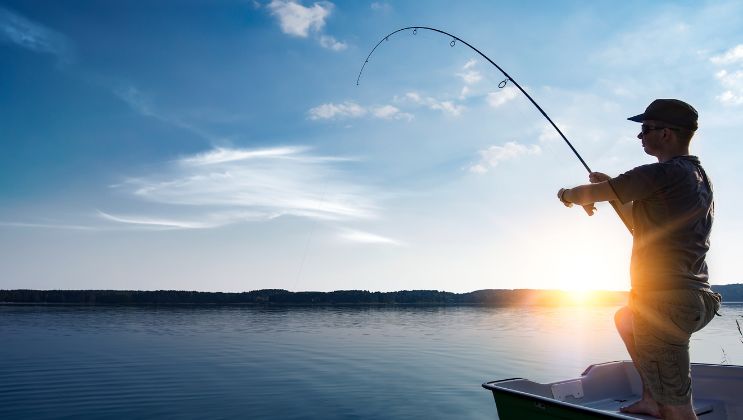How Weather Affects Fishing In Canada: What To Know

Experienced anglers combine observation and instinct to pursue their trophies. One topic of discussion and debate for those chasing the Canadian Grand Slam is how weather affects fishing in Canada. What to know includes a few facts about temperature, pressure, and how weather affects the turbidity of lakes and rivers.
Temperature and Available Oxygen
Every species has a specific temperature range within which they thrive. Temperature affects how much dissolved oxygen is available in the water for fish. Cold water has more oxygen, while warmer water has less. If the temperature rises beyond a species’ tolerance, they’ll move to deeper water. In temperatures too low, fish are sluggish and slow to feed. Cold tempos also affects meal digestion.
What Causes Lake Water Temperature Changes?
During the winter, lake waters lose heat to the frozen habitat above. As water cools, it becomes denser and sinks, sending warmer water to the surface, where it cools and sinks, a process called turnover.
Then, when the air warms up in spring, the warming surface water, still colder than the air above it, continues to sink, and mixes with the colder deep water. It takes time for the lake’s waters to catch up to the air temperature. This is called seasonal lag.
Rainfall can also cause rapid temperature changes in a lake. A heavy downpour can cool the surface water quickly, leading to a sudden drop in temperature. These fluctuations can affect fish behavior.
Rain also drives debris and nutrient-rich runoff into lakes, causing some species to become more active as they feed on the small prey which thrive on these run-offs.
Barometric Pressure: Myth or Reality?
Have you ever wondered why fish seem more active before a storm? It’s all about barometric pressure! As the pressure drops ahead of a cold front, fish sense the change in their swim bladders, an organ that regulates their buoyancy.
As barometric pressure falls, experts theorize that there is less pressure on the fish bladder, causing fish to become more active and willing to bite. Higher pressure has the opposite effect.
Experienced anglers may tell you that a grey, cloudy day with slowly declining pressure before a storm is a great time to fish. There are naysayers, however, who claim to have found no scientific evidence for this barometric pressure rule about fish behavior.
Whether the pressure theory about fish is true, we do know that falling barometric pressure often means a storm is coming. Use common sense, and don’t go out when lightning is possible! One of the greatest conductors of electricity is a graphite fishing pole.
Wind and Rain
In addition to temperature changes and runoff, wind and rain can influence fish behavior. Wind can stir up the water, dislodging food sources and making fish more likely to feed or pushing schools of baitfish up against a shoreline . Rain and overcast skies can do the same, providing cover from the sun that makes fish less cautious and easier to catch. While crystal clear waters may be beautiful to behold, a bit of turbidity can be an angler’s best friend.
When you know how weather can affect fishing and pair your knowledge with the expertise of Gangler’s fishing guides, you’ll be set to pursue trophy pike fishing or even the Canadian Grand Slam. Come fishing with Gangler’s in the North Seal sub-arctic area of Manitoba.
